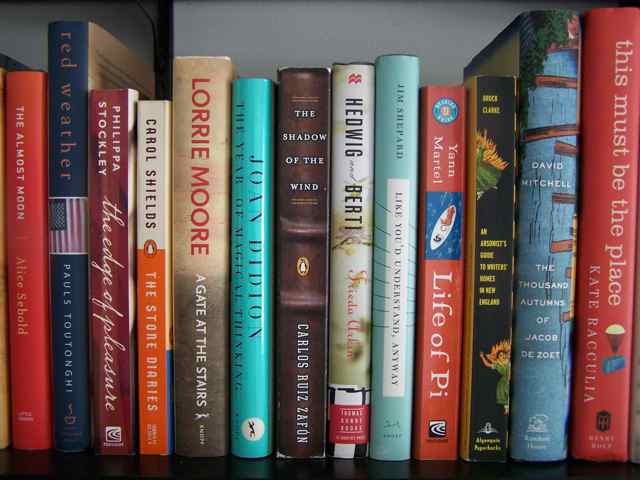 My Name Is Lucy Barton by Elizabeth Strout is a very short novel – just over 200 pages – but I’ve spent a disproportionately long time thinking about it before reviewing it!
My Name Is Lucy Barton by Elizabeth Strout is a very short novel – just over 200 pages – but I’ve spent a disproportionately long time thinking about it before reviewing it!
When I first finished reading My Name Is Lucy Barton, I thought, “Is that it?” – disappointed at the spareness of the writing and the inconclusiveness of the story, especially after the author’s last book, The Burgess Boys, which takes on family dysfunction in a more traditional style.
After rereading the passages I highlighted in the book, though, and considering the book as a whole, I see how it coalesces around the idea that a novelist has only one story that he/she writes in different ways. So, depending on how you look at it, My Name Is Lucy Barton is either a brilliantly written work of literary fiction – a realistic, slow-burning glimpse into a writer’s psyche – or a segmented collection of journal-type entries with no satisfying narrative arc.
My Name Is Lucy Barton has more in common with Olive Kitteridge – a collection of linked stories – than with The Burgess Boys. Written in the style of a memoir of a successful novelist looking back on a lengthy hospital stay as a young mother during which her own emotionally and geographically distant mother came to stay with her, while her two daughters and husband visited only rarely and she worried that she would die and leave her children motherless.
It’s not even really written in the style of a memoir. More of a writer’s notebook, or a collection of memories or partially remembered stories, carefully written down and recorded as a way of sorting out or coming to terms with the past. The writer (Lucy Barton) seems to be trying to remind herself that there were times when she was happy, and there were people who cared for her and about her, despite the overall air of melancholy that pervades her stories and memories.
My Name Is Lucy Barton is best for literary fiction readers who like the idea of delving into a writer’s memories – it’s a very interior, psychological story – and don’t care about there being no plot and a hard-to-discern story line.
If you liked The Sense of an Ending by Julian Barnes, you would probably like My Name Is Lucy Barton. This novella reminded me of that one in the way the narrators of both are looking back as older adults and trying to parse events in the past to see repercussions, find a theme, or sort out the truth of the matter.
My Name Is Lucy Barton
Strout, Elizabeth
Random House
Jan. 12, 2016
9781400067695
208 pp./$26 US
Disclosure: I received an e-ARC of this book from the publisher through NetGalley.
Other opinions on My Name Is Lucy Barton:
AudioFile (audiobook review)
Books, The Universe, and Everything
Lakeside Musing
Necromancy Never Pays
Sarah’s Bookshelves
